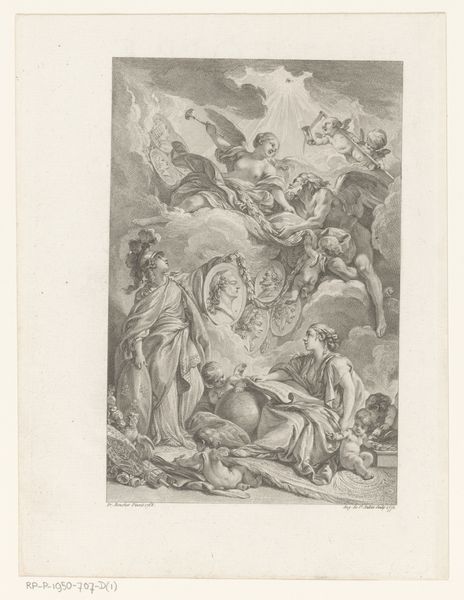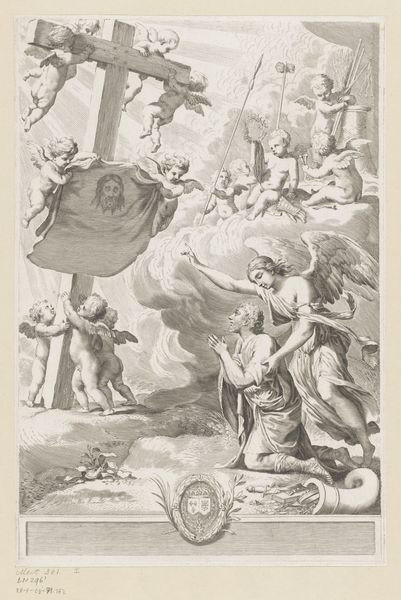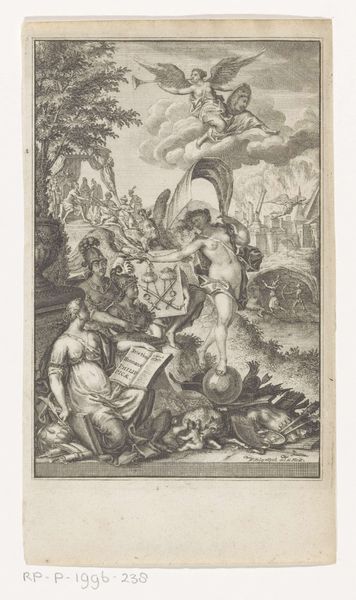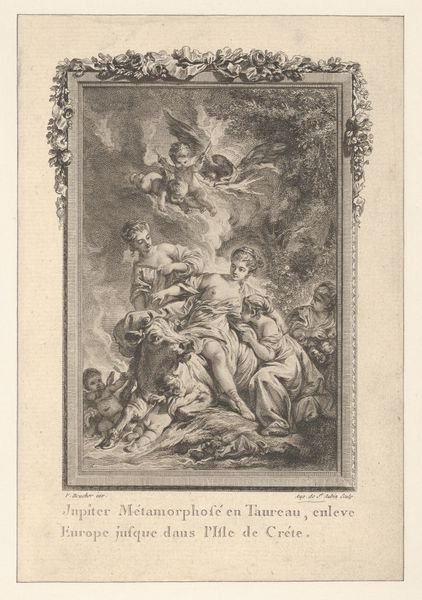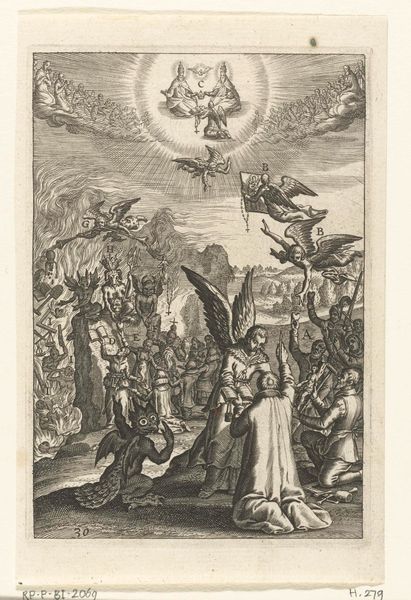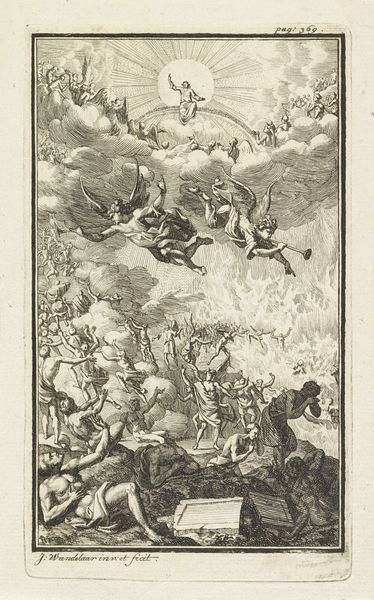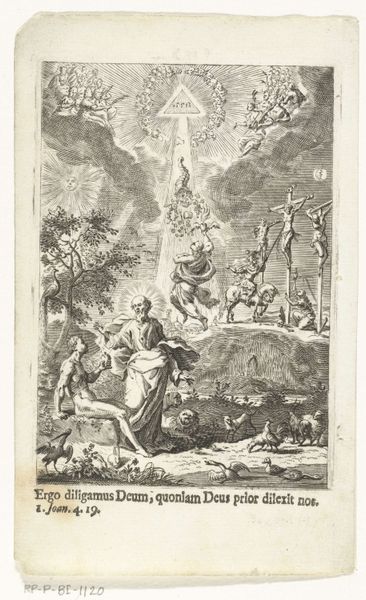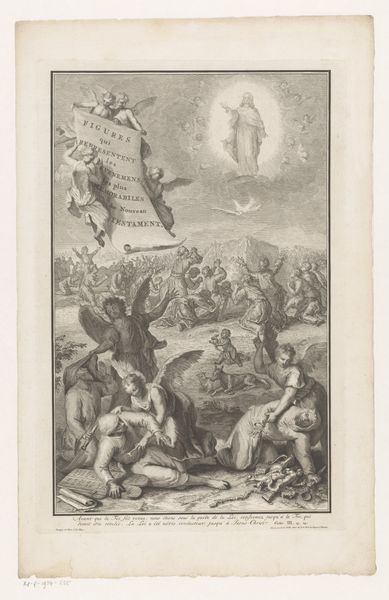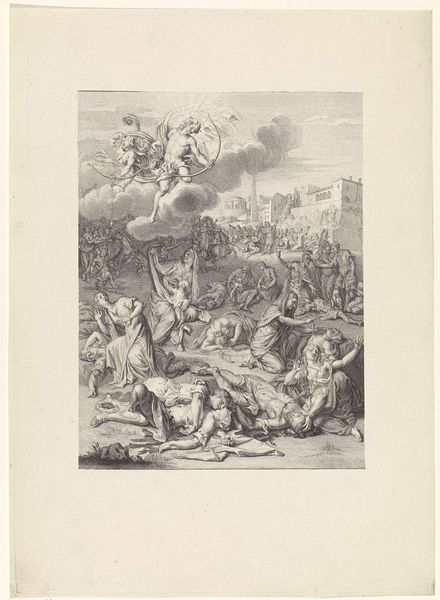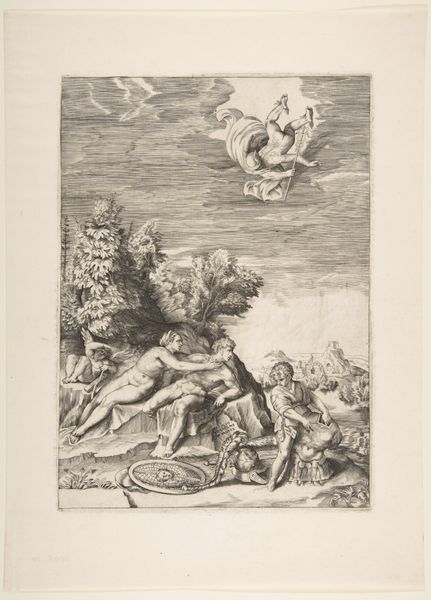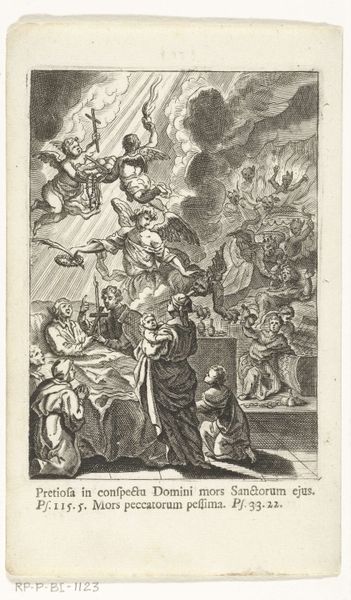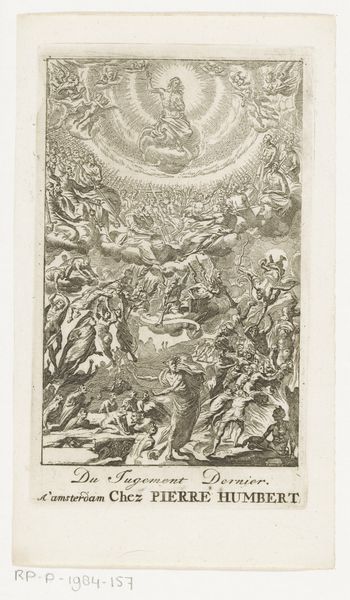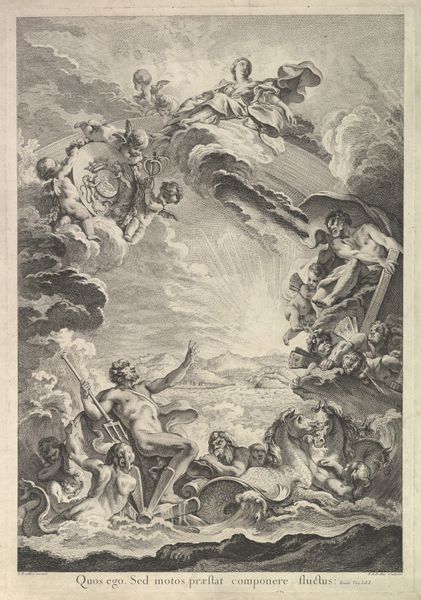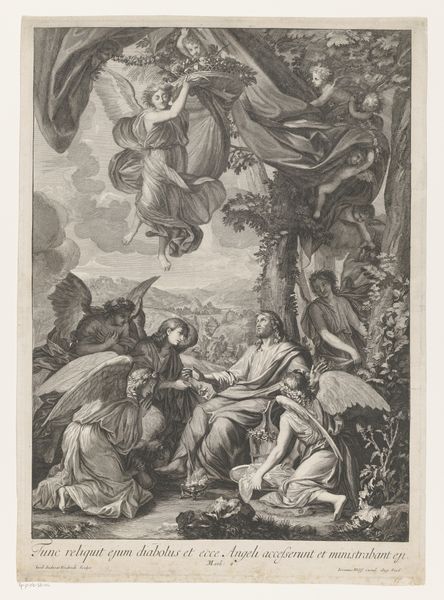
print, engraving
#
portrait
#
allegory
#
baroque
#
ink paper printed
# print
#
old engraving style
#
pen-ink sketch
#
engraving
Dimensions: height 188 mm, width 143 mm
Copyright: Rijks Museum: Open Domain
Editor: This is "Angel with the Portrait of Pieter Burman," an engraving by Jan Caspar Philips from around 1744. It’s such a busy image, almost overwhelming at first glance, with angels, portraits, and putti all vying for attention! What stands out to you the most in this piece? Curator: Oh, what a delicious, baroque swirl! To me, this print whispers of legacy and remembrance. Philips masterfully weaves together the earthly and the divine. Can you spot the symbolic language in this work? Consider those cherubs, for example, are they mere decoration? Editor: Well, I see a portrait held aloft by an angel, so the ‘immortality’ aspect is pretty clear. And the cherubs, they’re adorning someone, possibly Burman, with flowers… symbolizing… honor, maybe? Curator: Precisely! This isn’t just about honoring a man, but enshrining his intellectual contributions. Think of the Baroque era – it adored grandeur, elaborate ornamentation and an expression of power and influence! Consider the garden scene below. Does that evoke any specific mood, feeling, or memory? Editor: It feels…staged. Like a theater backdrop. Artificial and idealised. The architecture doesn't even quite match the "natural" setting around it! Almost as if to say Burman's real achievements outweigh his everyday setting. Curator: You’ve struck upon the key point! And isn’t the floating portrait rather theatrical? This print encapsulates how the Baroque era could, quite wonderfully, elevate the individual to almost mythical status. How would you compare this visual fanfare to contemporary memorial art? Editor: Modern memorials are definitely more… subdued. Think minimalist sculptures or walls with names. Less "angelic announcement" and more quiet contemplation. Curator: Indeed. A fascinating shift, reflecting changing values and perspectives on mortality and commemoration. What a journey! Editor: Absolutely! It’s amazing how much a single print can tell us about the past and how we've changed since then.
Comments
No comments
Be the first to comment and join the conversation on the ultimate creative platform.
